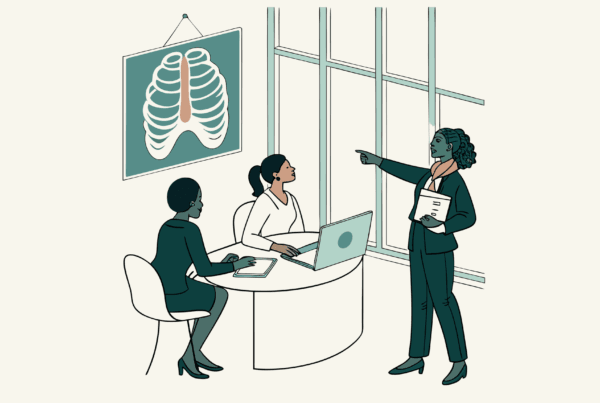Selling your Occupational & Hand Therapy practice in West Virginia is a significant decision. Today, growing buyer interest from regional health systems and private equity groups is creating new opportunities. For practice owners, this represents a unique chance to secure a premium value and protect their legacy. Proper planning and an understanding of the market are the first steps toward a successful transition.
Curious what your practice might be worth in today’s market?
Market Overview
The market for therapy practices is active across the country, and West Virginia is part of that trend. Larger organizations are looking to expand their footprint, and they see the value in well-run, local practices. Understanding these dynamics is the first step toward timing your exit correctly.
National Trends, Local Impact
Nationally, we see significant consolidation in rehabilitation services. Private equity-backed groups and larger strategic health systems are actively acquiring practices to build regional density. For a practice owner in West Virginia, this means you likely have more potential buyers than ever before. The key is knowing how to find them and present your practice in a way that attracts their attention.
Demographic Tailwinds
West Virginia’s demographic profile, with a growing senior population, creates a steady, increasing demand for occupational and hand therapy services. Sophisticated buyers understand this. They are not just buying your current patient list. They are investing in the future demand within your community, a factor that can positively influence your practice’s valuation.
The structure of your practice sale has major implications for your after-tax proceeds.
Key Considerations
Beyond the numbers, selling your practice is a personal journey. The right buyer is not always the one with the highest offer. It is the one who aligns with your goals. Do you want to continue practicing post-sale? Do you want to protect your long-serving staff and ensure the culture you built is preserved? These are not small details. They are central to a successful transition. Defining what a “win” looks like for you, your family, and your team is a critical first step. A good partner will respect your clinical autonomy and work to maintain the legacy you have spent years creating. This requires finding a buyer whose vision for the future matches your own.
Your legacy and staff deserve protection during the transition to new ownership.
Market Activity
The current M&A landscape for therapy practices is competitive. This is good news for you as a seller. Understanding who is buying can help you position your practice for the best outcome. Here are the primary buyers we see in the market today.
-
Private Equity Platforms. These buyers are often looking to build a large regional or national brand. They bring operational expertise and capital, and are often interested in practices with strong management and growth potential. They may offer sellers a chance to retain some equity.
-
Strategic Health Systems. Hospitals and large regional medical groups in and around West Virginia are often looking to expand their rehabilitation service lines. They acquire practices to create a more comprehensive care network for their patients.
-
Local or Regional Competitors. Sometimes the best buyer is a successful practice in a neighboring area looking to expand. They already understand the local market and payer dynamics.
Not sure if selling is right for you? Our advisors can help you understand your options without any pressure.
The Sale Process
Selling your practice follows a structured path. It begins long before you talk to a buyer. The first phase is preparation, where you organize your financial and operational documents. Next, we would discreetly identify and approach a curated list of qualified buyers without revealing your practice’s identity. This creates a competitive environment. Once interest is confirmed, you move into negotiation on the key terms of a deal. This is followed by buyer due diligence, a deep dive into your practice’s records. It is a critical stage where many deals face challenges. With proper preparation, it can be a smooth confirmation of value. The final step is navigating the legal contracts to a successful closing.
The due diligence process is where many practice sales encounter unexpected challenges.
Valuation
What is your practice actually worth? The answer is more complex than a simple multiple of your revenue. Sophisticated buyers value your practice based on its profitability, specifically its Adjusted EBITDA. This is your Earnings Before Interest, Taxes, Depreciation, and Amortization, with adjustments made for owner-specific expenses. A higher Adjusted EBITDA, combined with strong operational factors, leads to a higher valuation multiple. Many practice owners are surprised to learn their practice is worth more than they thought once their financials are properly presented.
The final multiple applied to your Adjusted EBITDA depends on several factors:
| Factors That Increase Valuation | Factors That Decrease Valuation |
|---|---|
| Multiple therapists and service lines | Reliance on a single owner/therapist |
| Strong referral network | Concentrated referral sources |
| Favorable payer mix with good rates | High percentage of out-of-network |
| Documented growth history | Inconsistent or declining revenue |
| Modern facility and equipment | Outdated facility or technology |
A comprehensive valuation is the foundation of a successful practice transition strategy.
Post-Sale Considerations
The day you close the sale is not the end of the journey. The structure of your deal has long-term implications. For example, careful tax planning is important to maximize your net proceeds. Many deals also include components beyond cash at closing. You might be offered an “earnout,” which provides additional payments if the practice hits certain performance targets post-sale. Or you may have the opportunity for “rollover equity,” where you retain a minority stake in the new, larger company. This can provide a “second bite of the apple,” giving you a chance for another significant payday when the larger entity is sold years down the road. Planning for these scenarios is a key part of a smart exit strategy.
The structure of your practice sale has major implications for your after-tax proceeds.
Frequently Asked Questions
What are the current market trends for selling Occupational & Hand Therapy practices in West Virginia?
The market is active with growing buyer interest from regional health systems and private equity groups. There is significant consolidation nationally, creating more potential buyers than ever before for practice owners in West Virginia.
How is the value of my Occupational & Hand Therapy practice in West Virginia determined?
Valuation is based on profitability, specifically Adjusted EBITDA (Earnings Before Interest, Taxes, Depreciation, and Amortization, adjusted for owner-specific expenses). Factors such as multiple therapists, a strong referral network, favorable payer mix, documented growth, and modern facilities can increase valuation.
Who are the typical buyers for Occupational & Hand Therapy practices in West Virginia?
Primary buyers include Private Equity Platforms seeking regional or national brands, Strategic Health Systems expanding their rehabilitation service lines, and Local or Regional Competitors looking to expand in neighboring areas.
What should I consider beyond the sale price when selling my practice?
Beyond the financial offer, consider alignment with your personal goals, such as continuing to practice post-sale, protecting staff, and preserving your practice’s culture and legacy. Finding a buyer whose vision matches yours is crucial for a successful transition.
What is the general process for selling an Occupational & Hand Therapy practice in West Virginia?
The process includes preparation of financial and operational documents, discreetly approaching qualified buyers, negotiation of deal terms, buyer due diligence, and navigating legal contracts to closing. Proper preparation is key to a smooth transition.



